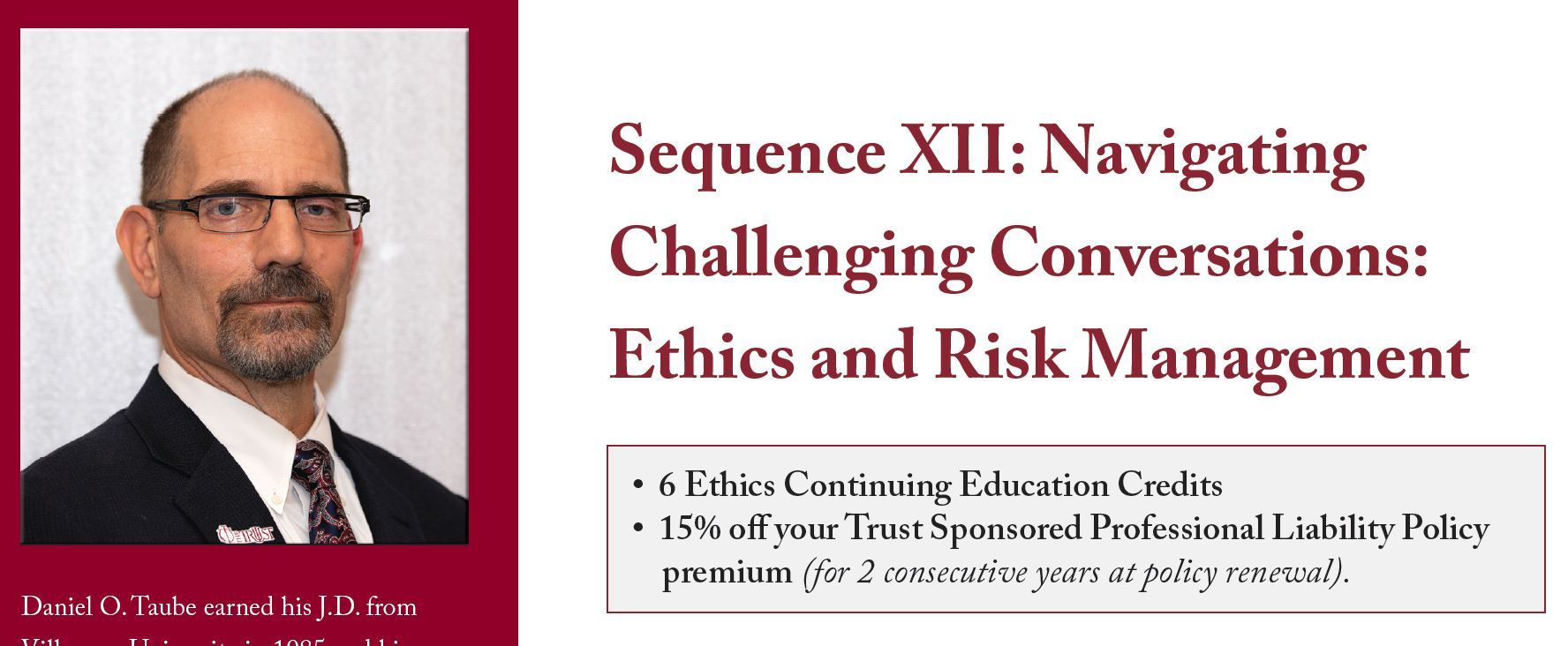
Workshop Description
For over two decades, The Trust has worked to educate and support psychologists in improving their ethics and risk management skills and strategies by providing live workshops, webinars, risk management consultation, and expanding resources. This 12th workshop in our
Sequence series continues to emphasize applied, integrated, and strategic methods to help you stay grounded in ethical principles and practices and to protect yourself from adverse disciplinary and legal actions.
The Trust Risk Management Consultants have culled subject matter from some 110,000 consultations provided to date to focus this workshop on problems practitioners often encounter. The overarching theme of Workshop 12 is on the ethics and risk management of navigating various types of challenging conversations that arise in professional practice.
Specifically, topics will include: the possibly impaired or unethical colleague; race and microaggressions; record keeping and the Information Blocking Rule; mandated child abuse reporting; multiple relationships and conflicts of interest in collateral versus conjoint services; managing risks of cross-jurisdictional telepsychology; and the ethics and risk management of responding to patients/clients who engaging in stalking, threatening, or harassing behaviors.
Objectives
• Describe at least five basic principles of ethics and risk management, as applied to several specific clinical situations that frequently arise in professional practice.
• Identify three risk factors and warning signs of distress/ impairment in ourselves and our colleagues, and list three primary interventions for managing professional distress/impairment,
and delineate two factors to consider when preparing for a conversation with a potentially impaired colleague and for deciding the appropriateness of a formal or informal ethical resolution.
• Describe two methods for effectively engaging in challenging conversations regarding race and ethnicity with colleagues, supervisors/supervises, and patients/clients.
Continuing Education Credits
• Define the Information Blocking Rule and explain two strategies for ethically managing risk related to this rule.
• Identify three types of immunity provisions that protect psychologists who make mandated child abuse reports; and list three steps psychologists can take to minimize their risk in these situations.
• Apply at least two risk management strategies for decreasing risks when involving collaterals in treatment and/or providing conjoint psychological services.
• List four broad categories of factors to consider when determining whether to provide cross-jurisdictional telepsychological services.
• Discuss four strategies for ethically and safely managing patients/ clients who exhibit stalking, threatening, or harassing behaviors.
Sequence XII: Navigating Challenging Conversations: Ethics and Risk Management is sponsored by The Trust. The Trust is approved by the American Psychological Association to sponsor continuing education for psychologists. The Trust maintains responsibility for this program and its content.
*This course will not fulfill requirements of all jurisdictions. It is important that potential participants review their respective state licensing board requirements prior to registering for this workshop.
%20(3).png)

